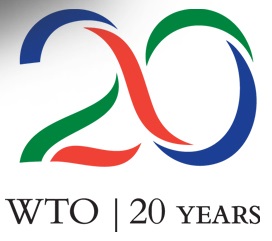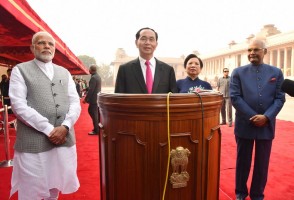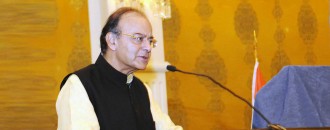
WTO grapples with growing challenges as it turns 20
Bidhu Bhushan Palo | The Dollar Business
 “We are living off the liberalisation and reforms of the past.” - Roberto Azevêdo, DG, WTO, had said in 2014. (Pic. source - WTO)
“We are living off the liberalisation and reforms of the past.” - Roberto Azevêdo, DG, WTO, had said in 2014. (Pic. source - WTO)Despite the slowdown in global trade and growing importance of regional agreements (and disagreements) seen in 2014, optimism seems to be back at the World Trade Organisation (WTO). As it turned 20 on January 1, 2015, Roberto Azevêdo, Director-General, WTO, said, “20 years ago, on 1 January 1995, the WTO opened its doors for business. Our organisation has evolved since 1995. We have welcomed 33 new members, ranging from some of world’s largest economies to some of the least developed. Today our 160 members account for approximately 98% of global trade.” He also added that, “Moreover, at our 9th Ministerial Conference in Bali in 2013, we took our first major step forward in updating multilateral trade rules. The measures agreed in Bali were a real breakthrough for the WTO, and they will provide a significant economic boost. In December 2014 WTO Members came together to recommit to implementing all aspects of the Bali package.” And that’s where the disappointment lies. The fact that the WTO arrived at a consensus on the Trade Facilitation Agreement (TFA), hailed as the biggest breakthrough since its inception by the WTO, after a delay of around six months from the July 31, 2014 deadline, and over a year after members agreed to adopt it, shows that frustration is something the WTO has to get accustomed to in coming years. Azevêdo also claimed that the WTO has played a crucial role in strengthening world trade and resolve trade disputes. However, why has it failed to take notice that Pakistan has not granted the Most Favoured Nation (MFN) status to India for 20 years now? And why could it not resolve India’s concerns over food security programmes when the matter was resolved miraculously between India and USA in late 2014? Azevêdo said that WTO has provided a bulwark against protectionism, but why was it mum when several countries and major economies such as USA, Russia, and EU used trade restrictions as a weapon in 2014. Why is it quiet over the decline in oil and commodity prices and its impact on global trade? The truth is that 2014 was a mirror that showed a not so flattering picture of the organisation which boasts of “all or none” as its hallmark. In 2014, the WTO was, at best, an organisation that could do nothing but hope and be held hostage to decisions of the superpowers. There are more challenges for the WTO this year. So far, we have seen that politics wins over trade. And there is a real concern that politics may become more powerful in 2015. Regional agreements such APEC, BRICS, ASEAN, SAARC and TPP have all been in focus for members in 2014 and are expected to knock multilateralism off the table in 2015. In Azevêdo’s own words, 2015 is set to be an eventful year for the WTO. He plans to hold the 10th Ministerial Conference in Nairobi in December 2015. The 5th Global Review of Aid for Trade will be held in June-July this year. However, what’s interesting is that the WTO plans to implement all aspects of the Bali package and address other issues of the Doha Development Agenda by July 2015. Six months from now will be a good time to evaluate the status of the WTO, its promise to developing and least developed countries, and its place in a world that is witnessing an economic and political reset.
This article was published on January 2, 2015.






 to success.
to success.